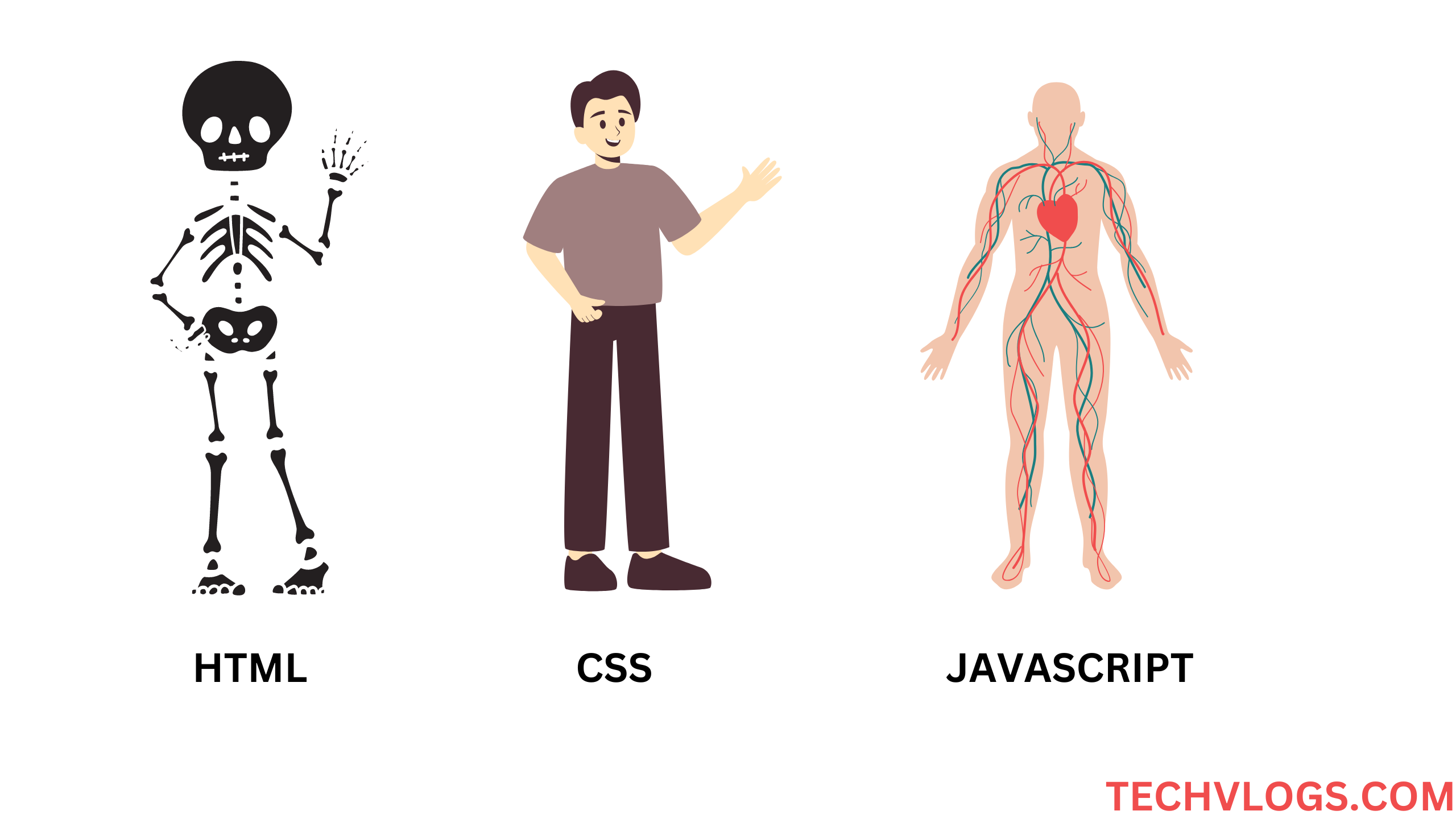Can we develop a Website without JavaScript(JS)….?
Website without JavaScript: Imagine a website is like a person. The HTML is the bones – it gives the basic structure and foundation. The CSS is like the person’s clothing and hairstyle – it makes them look presentable and stylish on the outside.
But without JavaScript, this person would just be standing there like a mannequin in a store window – pretty to look at, but lifeless and unable to actually do anything.
JavaScript is like the brain and nervous system that makes the person able to function, move around, and interact with the world.
For example, when you go to a website and click a button, and something pops up or changes – that’s JavaScript working behind the scenes, just like your brain controlling your body’s movements.
Or when you fill out a form online, and it checks if you missed any fields before letting you submit it? That’s JavaScript’s quality control, similar to your brain checking if you remembered your keys before leaving the house.
Those neat photo galleries or carousels that scroll through images on websites? JavaScript is controlling that animation, like your brain telling your eyes to blink.
Smooth and responsive
You know how some websites feel smooth and responsive, almost like a mobile app? That’s JavaScript loading new content instantly without making you wait for a whole new webpage. Just like your brain processing new information continuously without forgetting what you already knew.
Basically, JavaScript is the spark of life that makes websites useful and interactive rather than just static pictures. Without it, the web would be basically a huge online museum of pretty but lifeless exhibits.
With JavaScript, websites can understand your inputs, animate and update things instantly, load new data on-the-fly, and a whole lot more! It’s what turns dry code into living, breathing websites that can interact with you as easily as another person can.
So while HTML and CSS make websites look good, JavaScript is absolutely critical for making them actually work and come alive to fully engage with users in a really natural way. It’s the brain that gives websites their smarts and abilities.
JavaScript plays a crucial role in modern website development.
-
JavaScript brings websites to life! It’s the secret sauce behind those cool interactive features you see all over the web. Imagine clicking a button and seeing things happen, or menus that pop up when you hover over them. That’s JavaScript at work. It lets developers create all sorts of dynamic effects, from fancy animations to smooth image sliders and even making sure you fill out forms correctly. In short, JavaScript makes websites feel more engaging and responsive.
-
JavaScript: the web sculptor! The Document Object Model (DOM) is basically a blueprint of a webpage. JavaScript acts like a sculptor’s tools, letting developers mold this blueprint. They can add new elements, change styles, or even remove things entirely. This allows for dynamic and interactive websites that respond to user actions like clicks, hovers, and even key presses.
-
JavaScript: master of waiting! Websites can now fetch data from servers in the background using JavaScript. This means no more waiting for whole pages to reload. Technologies like AJAX and Fetch API let JavaScript grab bits of information on the fly, keeping things smooth and responsive for users. It’s like having a super-powered assistant that gets things done without interrupting what you’re doing.
-
JavaScript’s got a new trick up its sleeve: building SPAs (Single-Page Applications)! These are fancy websites that feel like native apps. Imagine smooth transitions and updates without those clunky reloads. Thanks to modern libraries like React, Angular, and Vue.js, developers can craft these SPAs with JavaScript, making the web feel more app-like than ever.
-
Client-side validation and data processing JavaScript can be used to validate user inputs, perform data processing, and handle complex calculations on the client-side before sending data to the server. This can improve performance and reduce server load.
-
Creating browser-based games and multimedia JavaScript can be used to create browser-based games, animations, and multimedia experiences, either directly or in combination with technologies like WebGL and HTML5 canvas.
-
Third-party APIs are like superpowers for websites! it acts as the bridge, letting developers use pre-built tools (libraries and SDKs) from these services. This injects cool features into websites, all without needing to build everything from scratch. Think maps, social media feeds, or fancy payment options – all thanks to JavaScript’s smooth integration skills.
-
JavaScript is a hero for web accessibility! It lets users with disabilities interact with websites in different ways, like with voice commands or screen readers. It also champions progressive enhancement. This means everyone gets the core content of a website, while fancy features are layered on for browsers that can handle them. Essentially, It ensures nobody gets left behind on the web.

Conclusion :
Website without JavaScript : The choice to exclude JavaScript can be suitable for simple, content-driven sites or environments where security and performance are paramount. Ultimately, the decision depends on the specific requirements and goals of the project.
AI-powered Chatbots and Virtual Assistants……….
Written By: Manasa
Reviewed by : Ravve


